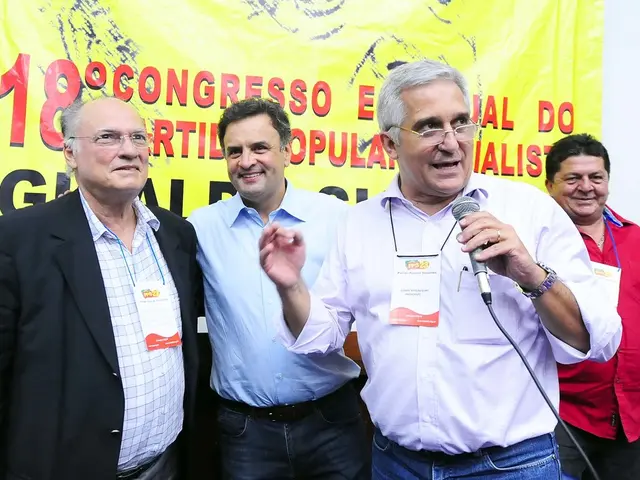CDU Figures Propose Ending AfD Boycott, But Rule Out Cooperation
Former CDU politicians Karl-Theodor zu Guttenberg and Peter Tauber have proposed ending the political boycott of the AfD, but maintain that cooperation is off the table. Despite this isolation, the AfD's rise persists.
The AfD's radical stance and refusal to moderate, like Marine Le Pen's National Rally, hinders its progress. It exploits its isolation to portray itself as a threat and highlight centrist parties' double standards.
The AfD's political quarantine, though seemingly ineffective, has proven surprisingly successful in preventing it from gaining power. Some eastern German CDU politicians advocate for a more pragmatic approach, potentially reevaluating the isolation strategy. However, no negotiations are currently underway.
The Union's tactic of imitation, such as Alexander Dobrindt's anti-immigration policies, has failed to reduce AfD support. In local elections, the AfD has grown in support but struggled to gain power, as seen in NRW and Brandenburg.
The AfD's strategic trap and unwillingness to change make the political quarantine the best available strategy, despite its drawbacks. However, a CDU minority government in 2026 elections could potentially give the AfD a foothold in Mecklenburg-Vorpommern and Saxony-Anhalt.
Read also:
- American teenagers taking up farming roles previously filled by immigrants, a concept revisited from 1965's labor market shift.
- Weekly affairs in the German Federal Parliament (Bundestag)
- Landslide claims seven lives, injures six individuals while they work to restore a water channel in the northern region of Pakistan
- Escalating conflict in Sudan has prompted the United Nations to announce a critical gender crisis, highlighting the disproportionate impact of the ongoing violence on women and girls.






